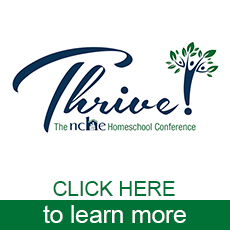
FREE Learning Resources
 So many incredible learning resources are available to families right now! Whether you’ve been homeschooling for ten years or ten minutes, here’s a list of some of our favorites.
So many incredible learning resources are available to families right now! Whether you’ve been homeschooling for ten years or ten minutes, here’s a list of some of our favorites.
My Father’s World
HSLDA has made 2 free digital activity packs available at no charge for all families.
Rainbow Resource
These math, science, language arts, social studies, and preschool activities are sure to be a hit with the whole family.
5 in a Row
5 in a Row is offering a free mini unit and some sweet scavenger hunts.
Konos
Konos is offering free, online video lesson plans and online homeschool mentoring.
Google is offering virtual tours of the most famous art museums on the planet!
YouTube
Take daily art classes with some of your favorite children’s book authors, including Mo Willems when you tune into their YouTube channels.
Disney
The Walt Disney Parks Blog invites you to be their guest as you learn to draw your favorite Disney characters through online tutorials with Disney imagineers.
Demme Learning
Founded by Steve Demme, an NCHE Thrive! Conference featured speaker, Demme Learning is an independent family-owned and operated publishing company based in Pennsylvania and includes these products: Math-U-See, Spelling-U-See, Kindertown, and Building Faith Families.
Classical U
Classical U is offering 3 weeks free when you use the link above and code: 3weeks.
Andrew Peterson
Beloved author and musician Andrew Peterson is offering a Facebook Live read-along of the WingFeather Saga beginning Friday, March 20.
Institute for Excellence in Writing
If idioms aren’t your jam and hyperbole is the absolute bane of your entire existence, you’ll be glad to see that the Institute for Excellence in Writing is offering free language arts instruction and support for parents.
SPED Homeschool
Parents who are suddenly home with children who have special needs or learning differences will appreciate this post (and online meet-ups for moms!) from SPED Homeschool.
Simple Homeschool
Can education really be this simple? Learn a great way to find your homeschool rhythm (aka, when to do what!) at Simple Homeschool.
HSLDA
HSLDA has started a Facebook community for families, parents, educators, and students who are having to change their education routines due to the coronavirus… because education isn’t a place–it’s an experience that can happen anywhere!
Playful Learning
Playful Learning is offering free resources PLUS a free webinar on how to create playful spaces in your home. Join them Friday, March 20, from 11am – 12pm EST.
Chess.com
Play chess, solve puzzles, and learn for free every day.
Dictionary.com and Thesaurus.com
These two sister websites have fun, free quizzes and short lessons to build your vocabulary and strengthen your knowledge in all things related to language.
Should I Homeschool My Children?
 Should I homeschool my children? More and more parents all over the world are asking this question. Many parents in NC are answering “Yes!” As of the 2018-19 school year, there are over 90,000 homeschool families in North Carolina.
Should I homeschool my children? More and more parents all over the world are asking this question. Many parents in NC are answering “Yes!” As of the 2018-19 school year, there are over 90,000 homeschool families in North Carolina.
Why do people choose to homeschool? There are many reasons: academic excellence, scheduling flexibility, special needs, and freedom to individualize a student’s pace and interests. Parents also want to remove their children from bullying, unnecessary exposure to immorality, and worldviews that are contrary to those of the parents.
You are the only one who can make the decision to homeschool your children. It is an important choice, so you’ll want to take the time to consider all your options, pray about it, and discuss it with your spouse. Here are three practical steps you can take in your decision making process.
1. Research.
Make a list of all of your questions. Most likely, some of them are:
- What are the laws for homeschooling in NC?
- Do I have to have a degree?
- Who will my children spend time with?
- What curriculum will I use?
- What will I do when I don’t know the subject I’m supposed to teach?
- What kind of support will I find in my area?
In the list above, you’ll find some helpful links to get you started on finding answers to these questions. Then keep digging until you get all the information you need.
2. Talk with experienced homeschoolers.
Plenty of people will have views and opinions about home education. There’s no harm in hearing everyone out, but I recommend paying close attention to experienced homeschool parents. Talking with real homeschoolers might prompt you to ask even more questions:
- What does a normal homeschool day look like?
- How do you take care of little ones while educating the older ones?
- How much does it cost?
- Will my kids be able to go to college?
Keep writing down your questions, doing research, and asking experienced homeschoolers for their perspective. You can also talk with the NCHE liaison in your region.
3. Attend the Thrive! Homeschool Conference.
This year the conference is May 28-30, 2020 at the Benton Convention Center in Winston-Salem, NC. We have been equipping, encouraging, and connecting homeschool families through our conference for 35 years. You’ll find:
- Knowledgeable and Inspiring Speakers
- A Huge Vendor Hall
- Fun Teen Activities
- An Engaging Children’s Program
- Encouraging and Inspiring Workshops
- Experienced Mentoring
- An Entertaining Talent Showcase
If you are still deciding about home education, one of the most important aspects of the conference will be the workshops that are especially geared to making this decision and getting started. Another will be the vendor hall, which is full of curriculum, books, and resources. There is also a mentoring table and plenty of experienced homeschoolers all over the place you can talk to.
What is your most pressing homeschool question? Let us know in the comments!
How Do I Open My Homeschool in North Carolina?
 Have you decided to homeschool in North Carolina? Great choice! North Carolinians for Home Education is here to help you homeschool with confidence and joy. Learn more about how we can help and how you can become a member!
Have you decided to homeschool in North Carolina? Great choice! North Carolinians for Home Education is here to help you homeschool with confidence and joy. Learn more about how we can help and how you can become a member!
In order to open your homeschool in NC, you can take these simple steps.
1. Make sure you understand the homeschool law in NC. You can read about it here.
2. Decide when you are going to begin homeschooling. You may open a homeschool anytime between July and April. If you are starting in the fall, do not open your school until July or later.
3. Create a digital copy of your high school or college diploma. The preferred format is PDF, but you may also use image formats.
4. Go to the web page for File an Intent to Operate a Home School in the Division of Non-public Education site. Follow the instructions there to open your homeschool.
5. Look for a confirmation email from the Division of Non-Public Education. Be sure to check your spam folders.
Once you open your homeschool, you are all set until you are done homeschooling all your children. You do not need to reopen each year. When you are done homeschooling, be sure you notify the DNPE that you are closing your homeschool.
Choosing a Name for Your Homeschool
 by Jessica Frierson, March 2020
by Jessica Frierson, March 2020
One of the first steps to take when beginning to homeschool is to choose a name. To register your homeschool with the Department of Non-Public Education, you will have to submit a name that will be assigned to your school for its entire duration. This is important to keep in mind as you make your selection. According to the rules that govern homeschools in our state, you may never change your school’s name. Even if you close your school at some point and reopen it at a later date, NCDNPE will still use your original school name.
Having the proper perspective that your homeschool is a legally recognized school in every aspect can be a good guideline for choosing a name for it. Consider it from the perspective of an outsider whose respect you wish to earn. The manner in which you type it on the state website becomes the official name. They will not correct your spelling or punctuation errors. It might be wise to write it out and have a friend or family member double-check it for you, then carefully type it on your application. Remember these grammar rules:
- Always capitalize the first and last word of any title.
- Capitalize nouns, pronouns, verbs, adjectives, and adverbs.
- Do not capitalize articles, prepositions, or coordinating conjunctions.
- Use an apostrophe to show possession.
Here is an example that follows all four rules: Johnson’s School of Fine Learning.
I find it helpful to picture your potential name as it might one day appear on a high school diploma, college or job application, military enrollment, or other “adult” type of paperwork. As cute and cozy as a name like “Happy Campers Homeschool” might sound for your kindergartner, it hardly gives a solid impression of a 18-year-old to a Marine recruiter. I have known many people who never thought they would homeschool past elementary or middle school grades and ended up going all the way through high school graduation.
Other things to avoid when selecting a name are:
- Using your child’s name (ie. School for Sam)
- Numbers used in place of words (ie. A Place 4 Learning)
- The use of symbols (ie. Learning @ Home)
- Names that don’t give the impression of a school (ie. Strong Faith or Ferguson)
- Names that are “cute” (Cozy Nest, Ponytail Academy)
Rules that NCDNPE has regarding naming your school include:
- The School Name must not exceed 30 characters in length (including spaces and punctuation).
- Do not use the following words in your school name: Charter, college, elementary, grade, grammar, high, incorporated (or Inc.), junior, kindergarten, lower, middle, primary, public, residence, schooling, secondary, seminary, senior, the, university or upper
- Do NOT use the name of your curriculum in your school name, even if you are registered with an accredited distance learning program. Example of names NOT allowed: ABEKA, BJU, Bob Jones, Keystone, Liberty.
- Do not use A or THE at the beginning of your school name
So what does make a good school name? Here is where you can let your creativity flow. Many people utilize their last name, the name of a significant person, or a name associated with where they live. Others use words that represent a virtue they value or a word that symbolizes an aspect of their vision for their school. The jury is split on using words such as Academy or School that make a definitive statement on the purpose of the name or letting the name speak for itself. So here are some examples to get your creative juices flowing. The Murphy family lives on Live Oak Lane in foothills of the Blue Ridge Mountains. Their vision for their school is a place where their three children will learn the fundamentals of a solid education from a Christian worldview, becoming well-prepared to be productive citizens as well as strong believers. They are fans of Thomas Jefferson and their most famous ancestor is great-grandfather George W. Sheldon, a circuit rider and missionary. Some possible names they might consider are:
- Murphy Center for Learning
- Live Oak Academy
- Foothills Preparatory School
- World Changers Day School
- Thomas Jefferson School
- George W. Sheldon Academy
- Solid Foundations
- Blue Ridge Lyceum
Proverbs 22:1 tells us that, “A good name is to be chosen rather than great riches.” Hopefully your homeschool journey will start with a good name and will yield many great riches as you and your children discover the many wonders of learning together!
Jessica Frierson is a homeschool graduate and has been homeschooling her ten children since 2000. She serves as the secretary for NCHE, writes for GREENHOUSE, and is the lead blogger for the NCHE blog.
A Prescription for Peace
 Here in North Carolina, the daily temperatures can really fluctuate. I’ve always heard that when there are tank tops and turtlenecks in the same load of laundry, you’re bound to catch a cold. Sure enough, the cold hit our home earlier this week. When I posted a prayer request for my congestion, a homeschool friend and mentor replied, “Go to Michelle! Ask her for some tea!” So I called Michelle, explained the situation, and she invited me to her home.
Here in North Carolina, the daily temperatures can really fluctuate. I’ve always heard that when there are tank tops and turtlenecks in the same load of laundry, you’re bound to catch a cold. Sure enough, the cold hit our home earlier this week. When I posted a prayer request for my congestion, a homeschool friend and mentor replied, “Go to Michelle! Ask her for some tea!” So I called Michelle, explained the situation, and she invited me to her home.
What struck me when I walked into Michelle’s home was that she had an entire room that was devoted to helping others. I saw a vision board, framed newspaper articles of her friends’ achievements, and a variety of goods for health and well-being. She had the time to invite me over, sit down, and talk with me. She listened and thoughtfully processed what I said. She encouraged me. She was confident in what she knew, and confident that God had called her to use her gifts to help others.
A beautiful home, a devoted husband, loving children, health, peace, and a God-given purpose: most of us would agree that Michelle embodied a woman who has it all—and she has it at HOME. As I left with my tea, I really left with so much MORE than tea. For my entire drive home, I felt peace. It was peace that had been imparted to me through having been in her peaceful company. I felt so grateful to God for showing me someone who embodied His peace. What an amazing thought it is that we, as home educators, might have the ability to bring peace into this world simply by having peace and the time to invite others into our homes.




